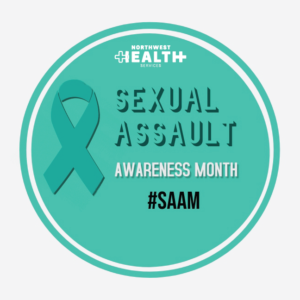 April is Sexual Assault Awareness month. By definition, sexual assault means any nonconsensual sexual act proscribed by Federal, Tribal, or State law, including when the victim lacks capacity to consent.
April is Sexual Assault Awareness month. By definition, sexual assault means any nonconsensual sexual act proscribed by Federal, Tribal, or State law, including when the victim lacks capacity to consent.
No one wants to think or talk about Sexual Assault. Yet, the reality is sexual assaults does occur. The statistics are alarming, especially in the United States. A sexual assault occurs every 68 seconds. One in every five American women (24.8%) have been the victim of attempted or completed rape. Females ages 16 to 19 are four times more likely than the general population to be victims of rape, attempted rape or sexual assault. Sexual assault is not exclusive to females. One in six American males (16%) have experienced sexual abuse or assault.
In Missouri in 2019 (the most recent statistics available), 14,553 victims of sexual assault sought services. That averages almost 40 per day or 1 incident every 36 minutes. Keep in mind, these are just the reported cases. There is no way to determine how many assaults go unreported.
While you can never completely protect yourself from sexual assault, there are some things you can do to reduce your risk:
- Be aware of your surroundings, avoid isolated areas.
- Have your cell phone with you at all times.
- Trust your instincts. If a situation or locations feels unsafe or uncomfortable, it probably isn’t the best place to be.
- When you attend social gatherings, go with a group of friends. Check in with one another throughout the evening.
- Never leave your drink unattended. Never accept a drink from someone you don’t know. If you suspect you or a friend has been drugged, contact law enforcement immediately.
Therefore, these are only a few tips to reduce the risk of sexual assault. It is very important to remember that if you are a victim of sexual assault—time is of the essence. Do not shower or bathe, do not to change clothing, but do go to the nearest emergency room, explain the situation and undergo a complete SAFE (Sexual Assault Forensic Examination) Exam in order to have evidence collected. The staff are specially trained and will assist you every step of the way.
As part of the care provided to victims of sexual assault, testing for STIs and STDs will be performed as well as a test for HIV (Human Immunodeficiency Virus). You will be provided with a limited supply of HIV prevention medications. This is medication is referred to as PEP (post-exposure prophylaxis). It is important to schedule an appointment with a specially trained provider for follow up care.
Northwest Health Services offers medical care for victims of sexual assault. A specially trained Medical Provider will counsel the patient regarding the importance of obtaining medications, taking the full regimen and what steps are needed for follow up care. Our Prevention Specialist can connect patients to programs to pay for PEP medications. For more information, please contact Janet Miller, Prevention Specialist at 816-901-1034.
